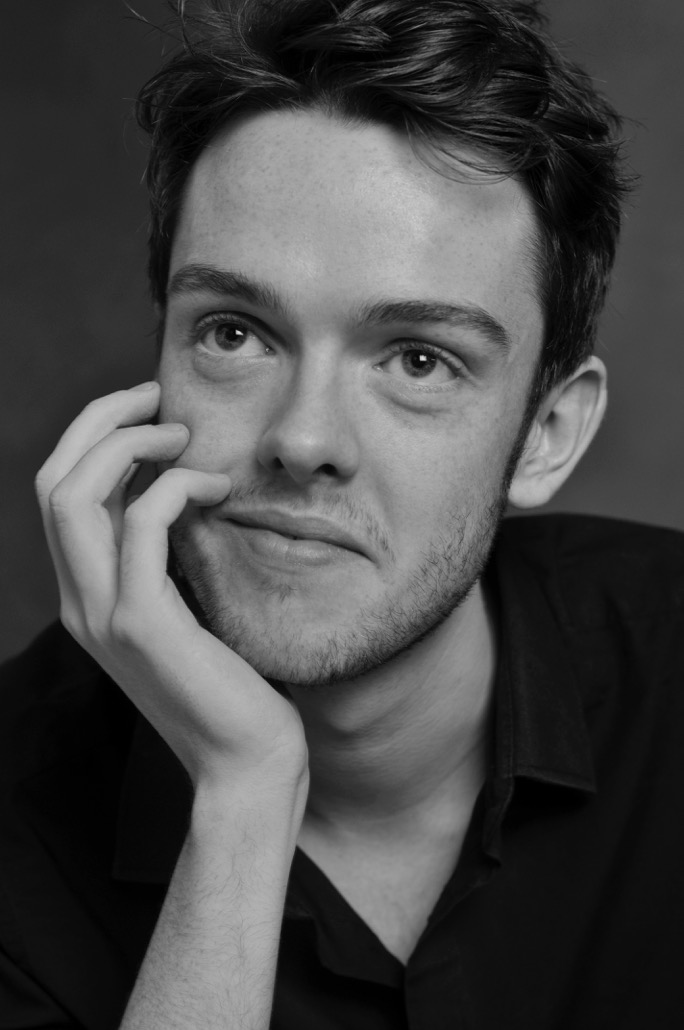With events running over two weeks and not a single day starting later than lunchtime it is impossible for even a hardened lieder-lover to really do justice to the Oxford Lieder Festival. I spent two whole days this year and managed to take in eight concerts which were clearly focused on the main theme of the festival – Singing Words, poets and their songs.
Lunch with Faure and Schubert
The two lunchtime recitals on Wednesday and Thursday 28-29 October, focussed on songs by Faure and Schubert. The first was given by baritone Nicholas Mogg, who won this year’s Oxford Lieder Young Artist Platform and it was easy to see why, as not only is the voice remarkably well focused but his presence is alive and he communicates warmly, introducing the songs with relaxed confidence. He brought a profound yearning to Faure’s Vaisseaux, nous vous aurons aimes en pure perte and a sensitive integrity to Schubert’s An die Musik. I look forward to hearing him again soon. He was very ably accompanied by Jams Coleman who showed a keen ear for the dynamics of the recital, coming into his own with the more dominant writing for Faure’s Serenade.
The following day brought us two singers from the National Opera Studio, Katherine Crompton and Hann-Liisa Kirchin. Soprano Katherine Crompton had asked our indulgence as she had been suffering from a throat infection but this did not seem to inhibit the charming rendition of Faure’s Mai or the sentimental Noel. Mezzo-soprano Hann-Liisa Kirchin impressed with the more powerfully emotional pieces, filling out Faure’s Au bod de l’eau with operatic enthusiasm and bringing real power to Au cimetiere. By contrast there was an unnerving simplicity to Faure’s Les trois soeurs aveugles.
Settings of Thomas Hardy
A new venture this year has been the inclusion of a number of free recitals, given in Exeter College Chapel. These focused on a single composition within a limited time-frame to given those who might be hesitant of hearing a complete song recital a taste of what is in store. In the event they proved to be the best events I attended across the two days, starting with a magnificent performance of Britten’s Winter Words from tenor Nick Pritchard accompanied by festival director Sholto Kynoch. If there is was ever a need to demonstrate the close relationship between words and music these surely do it. Nick Pritchard brought great clarity to the text, within quite a difficult acoustic, and his body language enhanced the impact of his voice. In The little old table he found an emotional intensity which is not immediately obvious in the text and was deeply moving in the gentle sensitivity of The Choirmaster’s Burial. If there is pessimism here, as so often in Hardy, it is lifted by the universality the score brings to the text, none more so than the final Before Life and After. This was a splendid occasion and if anybody was hearing lieder for the first time this could not surely have been a better start.
That afternoon baritone Benedict Nelson brought us Gerald Finzi’s settings Earth and Air and Rain. Deeply romantic in style, the verse concentrates on a range of Hardy’s rural voices, from the folksy Rollicum-rorum to the reflective In a churchyard. Though there was no obvious problem with his voice, the text did not carry well and it was, retrospectively, obvious just how clear Nick Pritchard had been earlier in the day. This did not matter too much as we had the text before us but may matter more if Benedict Nelson wants to be comprehensible without us having our heads buried in the programme.
These two concerts really did reflect the sensitivity of the composer to the text, something which we would come back to later in the day.
Strauss & Chopin
Festivals can often find a place for an oddity and Richard Strauss’ Kramerspiegel is certainly that. Roger Vignoles gave us an extended introduction to the work as it has a fine back-story. In the days when copyright was a far more difficult process, composers often found themselves obliged to hand over works to publishers with whom they no longer wished to work. Strauss found a way round this by writing a song cycle which attacked publishers, hoping that his own would refuse to publish and thus get him out of his obligation. Readers will need to look up the history for themselves, but it will be worth doing so for the fun of it alone. Suffice it to say that there is great play on the names of publishers, most of whom fortunately have names which are also animals or objects eg Bock – Goat. Strauss has great fun with these, as did we listening to them from Elizabeth Watts, whose sense of humour shone through as well as the voluptuous voice she brings on all occasions. Roger Vignoles delighted in highlighting the musical allusions (much here toying with Rosenkavalier etc) and providing sterling and vigorous support throughout.
Late on Wednesday evening Imogen Cooper gave us a little respite from the voice with an all Chopin recital in the Ante-Chapel of New College. Of a finely crafted programme the Fantasie Op49 was exceptionally beautiful, and the final G minor Ballade left us wanting more even though it was close to midnight.
Wildflowers and A Shropshire Lad
The two main evening recitals, though they brought the largest audiences, were both problematic. Anna Stephany’s concert on Wednesday evening seemed unbalanced and bity. While her singing was not at fault the long narrative of Haydn’s Ariann a Naxos was surprisingly unmoving though the nobility of Schubert’s Lied eines schiffers an die Dioskuren somewhat made up for this.
The second half opened with the world premiere of Rhian Samuel’s Wildflower Songbook , settings of poems by Anne Stevenson. Throughout the three songs the vocal setting is more lyrical than the accompaniment so there is a continuous underlying tension between text and music. This often works well, particularly when there is a sudden coming together emotionally as at the shell-frail colour of harebells, but at other times can make for more uncomfortable listening. On a first hearing, the whimsical charm of Digitalis impresses and it would be good to hear the cycle again to get a better feel of its merits.
Of the rest of the programme, the Sibelius songs had the power of simplicity, and Michael Head’s Foxgloves and Sweet Chance were particularly beautiful. Sholto Kynoch was the accompanist demonstrating yet again great versatility and sensitivity whatever he is called upon to play.
The final event I attended also proved to be the most contentious. On paper, performing Housman’s A Shropshire Lad, interpolating settings of the poems as the evening proceeds, should be a simple matter. In the event it was something of a dog’s dinner. While individual items impressed the whole simply did not hang together. It was also deeply hampered by the introduction of regular auto-biographical details which gave an un-necessary slant to the text which we were experiencing. If we add to this the wide range of settings, the whole was, in essence, a mess. C W Orr’s Wagnerian approach, many of his settings soundly distinctly sub-Tristan, sat uncomfortably beside John Ireland and Vaughan-Williams. Not that the voices helped. The three male singers, all in evening dress, seemed intent on presenting the songs like Edwardian ballads rather than the potential simplicity, even naivety which the texts imply. Graham Johnson had pointed out at the start that Housman’s verse is almost entirely monosyllabic and there is a reason for this which goes to the heart of the work. The further one gets away from the simplicity the less effective the texts become. I am very glad to have encountered this performance as I had often thought I would like to mount the cycle using the songs. There is no problem with the poems, there is no problem with the settings by their individual composers, but putting them all together is, in retrospect, a mistake, from which I hope we all can learn.
After so much that had been outstanding over the 48hours I was in Oxford, it seems a pity to end on a sour note. I’m just glad that the Festival draws our attention to so many fine young singers and to works which we might otherwise never hear.
Next year’s Oxford Lieder Festival runs from 14 – 29 October and will bring us the complete songs of Robert Schumann. As a warm up, there will be a Spring Weekend of Song, 4-6 March 2016 which will include the auditions for the Young Artist Platform.


